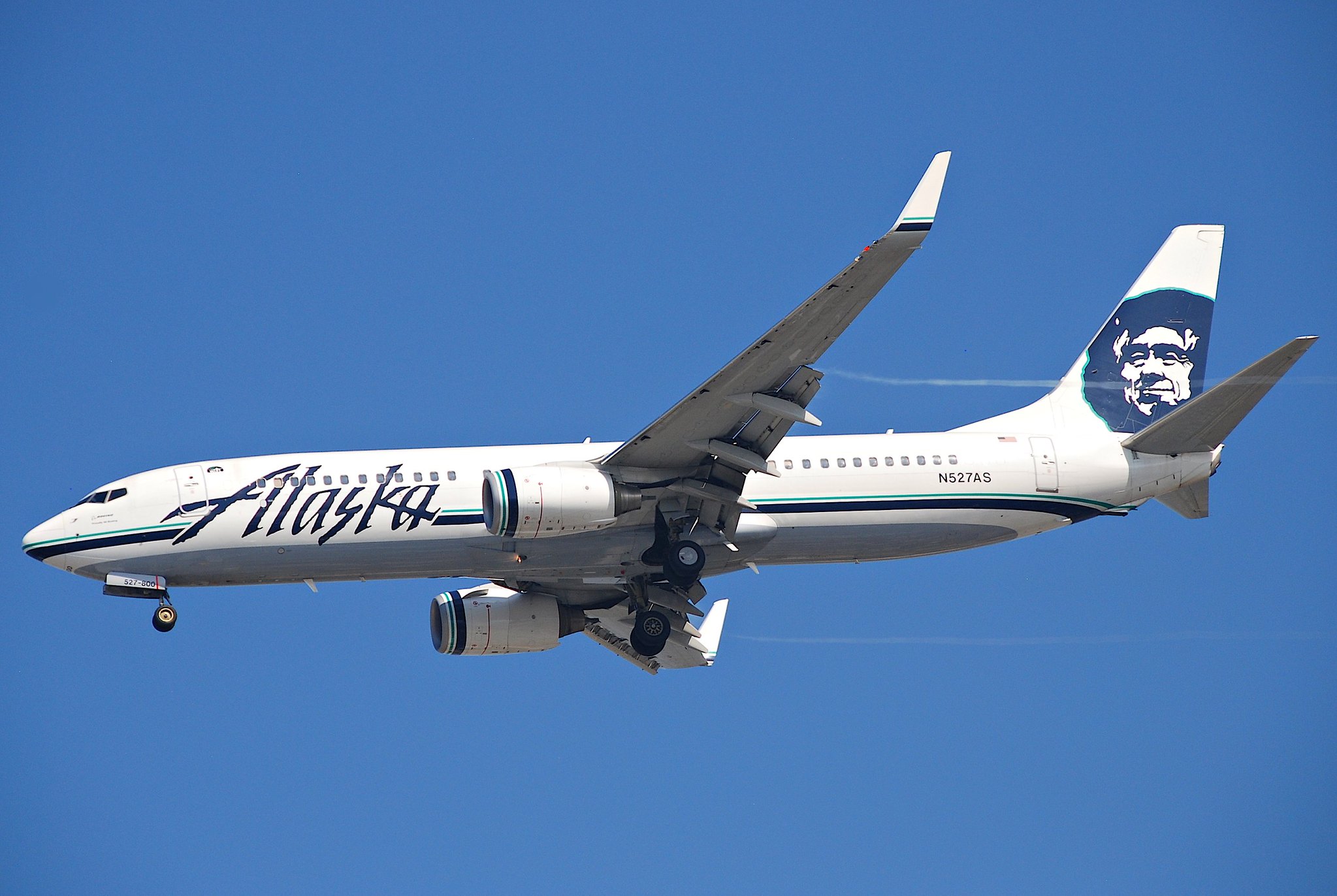Boeing’s legal woes continue to escalate as prosecutors from the United States Department of Justice (DOJ) could file criminal charges against the company for the countless safety issues that have plagued its 737 Max aircraft.
The Department’s recommendation is the latest hit to the aviation giant’s battered reputation and it could have serious consequences for its future. In the past few years, the firm has faced backlash and scrutiny from lawmakers, regulators, and the public for failing to implement adequate quality control procedures to ensure the safety of its planes.
DOJ Alleges Breaches to Boeing’s 2021 Deferred Prosecution Agreement

These tragedies led to a worldwide grounding of the aircraft that lasted 20 months and exposed serious flaws in both the plane’s design and Boeing’s certification process.
In January 2021, Boeing reached a $2.5 billion settlement with the Justice Department to resolve all charges related to the 737 Max crashes. This deferred prosecution agreement (DPA) was designed to spare Boeing from criminal liability as long as the company met certain conditions during a three-year period.
Just as the DPA was set to expire in January 2024, a new incident involving a 737 Max operated by Alaska Airlines occurred. A door plug blew out mid-air, leaving a big hole in the fuselage. The event immediately reignited concerns about Boeing’s quality controls.
According to sources familiar with the matter, the prosecutors who are handling the case at the moment are recommending that the Justice Department pursue criminal charges against the company. This suggests that investigators believe that Boeing may have violated the terms of its 2021 DPA.
While the specific charges that the DOJ would file if it decides to proceed with this suggestion have not been disclosed, they could potentially extend beyond the original fraud conspiracy charge from the 2021 agreement.
These charges could result in sizable financial penalties for Boeing and lead to additional oversight of the company’s operations by regulators and other third parties.
Boeing has declined to comment on these reports. However, the company has previously stated that it “honoured the terms” of the 2021 settlement and disagrees with any allegations that indicate otherwise.
Last month, the DOJ commented that Boeing failed to “design, implement, and enforce a compliance and ethics program to prevent and detect violations of the US fraud laws throughout its operations”.
Implications for Boeing and the Aviation Industry
Criminal charges could exacerbate Boeing’s already precarious financial situation. The company has posted core operating losses of $31.9 billion since the start of the 737 Max’s grounding in 2019. Additional fines or penalties could add extra pressure to Boeing’s finances and jeopardize its investment-grade credit rating.
In addition, being convicted of these charges could have a catastrophic impact on Boeing’s dealings with the United States federal government as agencies may not be able to grant the company contracts anymore. To put this in perspective, Boeing’s business with the US government accounted for nearly 40% of its total revenue in 2023.
Moreover, facing criminal charges would result in yet another blow to Boeing’s reputation. Once considered the poster child of the industry’s top safety and engineering practices, the company has struggled to regain the public’s trust following the 737 Max crashes and subsequent quality issues.
Calls for Accountability from Victims’ Families May Be Influencing the DOJ’s Actions
Family members of those who were killed in the two 737 Max crashes have been vocal critics of the 2021 deferred prosecution agreement, arguing that it failed to do enough to hold Boeing accountable for its mistakes.
Recently, a group of families wrote a letter to the Justice Department urging prosecutors to impose the maximum possible fine of $24.9 billion against Boeing.
In their letter, the families described Boeing’s actions as “the deadliest corporate crime in U.S. history” and demanded more severe penalties to ensure accountability and prevent future tragedies.
Ongoing Investigations and Oversight from FAA and Other Agencies
In response to the recent Alaska Airlines incident and overall quality concerns, the Federal Aviation Administration (FAA) launched a comprehensive audit of Boeing’s production processes. This audit aims to ensure that the firm complies with the industry’s best practices and maintains adequate quality controls.
Boeing has also faced increased scrutiny from lawmakers. In June, its CEO Dave Calhoun testified before the United States Senate and faced tough questions about the company’s safety culture and response to whistleblower complaints.
The top executive acknowledged that the firm is “committed to making sure every employee feels empowered to speak up if there is a problem” but acknowledged that Boeing is “far from perfect”.
Moreover, recent whistleblower reports have raised additional concerns about Boeing’s manufacturing processes and quality control:
- A report from Boeing employee Sam Mohawk alleged a “300% increase” in reports of non-conforming parts during the resumption of the 737 Max production.
- Former quality manager Santiago Paredes claimed that he was pressured to downplay the problems he found while inspecting 737 Max fuselages produced by Boeing’s supplier Spirit AeroSystems.
Potential Outcomes and Next Steps
As the Justice Department considers its next moves, these are some of the potential scenarios that Boeing could face in the near future:
- Criminal prosecution: The DOJ proceeds with filing criminal charges against Boeing, potentially leading to a trial or a new settlement agreement.
- Extended oversight: The Department might opt to extend the terms of the 2021 deferred prosecution agreement but impose stricter oversight and compliance requirements on Boeing.
- New settlement: Boeing and the DOJ could negotiate a new settlement agreement, potentially including higher fines and more stringent conditions than the previous deal.
The Justice Department has until July 7 to make a final decision. This deadline adds urgency to its ongoing deliberations and may result in intense negotiations between Boeing and federal prosecutors over the coming weeks.
Also read: History of Boeing: Conquering the Skies Before Scandal Hit
What do Industry Experts Think?
Aviation analysts and industry experts have made comments on Boeing’s current predicament and its implications for the company’s future.
Richard Aboulafia, managing director at AeroDynamic Advisory, suggested that, if criminal charges are filed, a new settlement is the most likely outcome. Such an agreement could include additional oversight of Boeing’s operations, possibly in the form of a federal monitor.
Meanwhile, Ed Pierson, executive director of the Foundation for Aviation Safety and a former senior manager at Boeing, emphasized the critical nature of the upcoming DOJ decision. He noted that ongoing issues with Boeing’s aircraft models suggest that the leadership team needs to be overhauled.
Boeing’s Faces Leadership Changes
In response to the ongoing crisis, Boeing has announced several changes to its senior management:
- CEO Dave Calhoun announced he will step down at the end of 2024. He will still receive $33 million as part of its severance package.
- The head of the 737 Max program, Ed Clark, was replaced by Katie Ringgold following the Alaska Airlines incident.
These changes signal Boeing’s acknowledgment of the need for fresh leadership to address its ongoing challenges and the need to rebuild trust with regulators, customers, and the public.
Boeing’s struggles stand in stark contrast to the performance of its main rival, Airbus. While Boeing has posted significant losses in recent years, Airbus is expected to report a net profit exceeding $4 billion for 2023 alone.
This disparity highlights the severity of Boeing’s challenges and the potential long-term consequences of its quality control issues on the firm’s competitive edge.
The outcome of this case against Boeing could have far-reaching implications for how aerospace manufacturers approach safety, quality controls, and regulatory compliance.
For Boeing, the stakes could not be higher. Criminal charges would not only result in sizable financial penalties but could also further damage the company’s reputation and its relationship with a key customer – the United States federal government. The future of Boeing continues to hang in the balance until this whole situation clears up.
